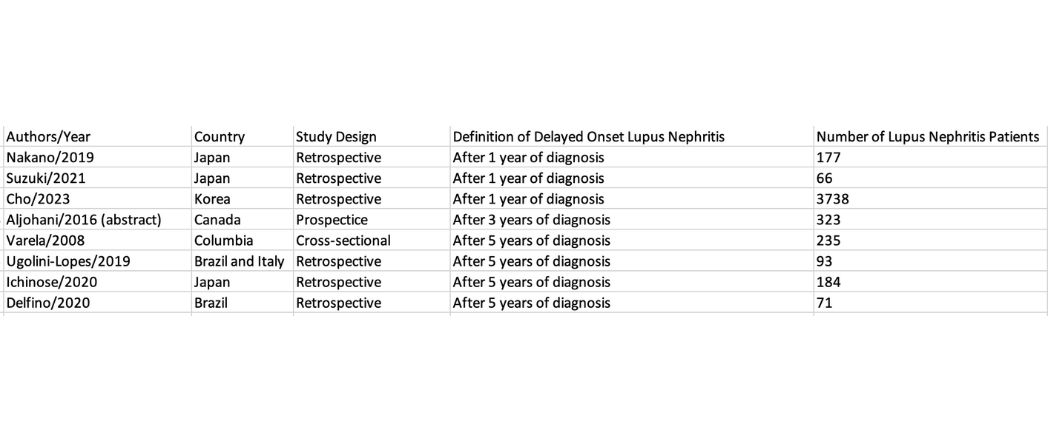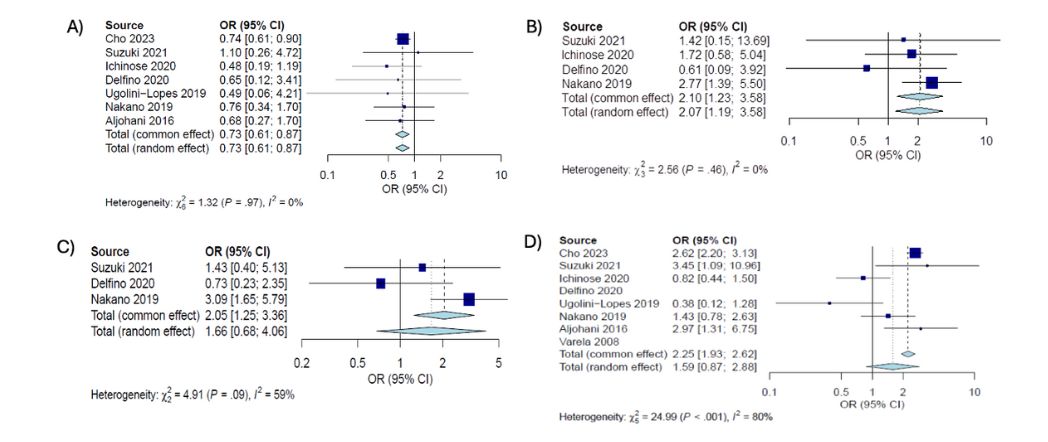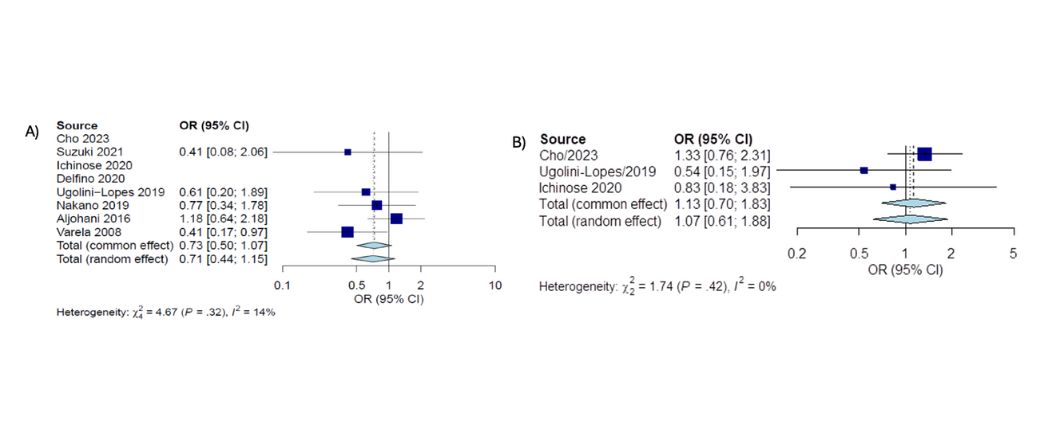Session Information
Session Type: Poster Session B
Session Time: 10:30AM-12:30PM
Background/Purpose: Systemic Lupus Erythematosus (SLE) is a chronic systemic autoimmune disorder characterized by a broad range of clinical and immunological manifestations, one of which is lupus nephritis (LN). This manifestation usually occurs early during SLE but may be a late complication of the disease in some cases. It contributes to significant morbidity and mortality, including end-stage renal disease (ESRD) in 10% of patients. This is the first meta-analysis that aims to summarize previously reported results comparing patient, treatment, and outcome-related characteristics in early versus late-onset LN.
Methods: A literature search was conducted through the PUBMED database to identify studies comparing early to late-onset LN. Late-onset LN was identified if LN was absent at the time of diagnosis and was diagnosed at least one year after the diagnosis of SLE. Studies were excluded if the definition of early versus late relied on the patient’s age rather than years since diagnosis of SLE. In addition, we searched the reference lists of published articles and international conference abstracts manually to ensure a broad comprehensiveness of the bibliography.
Results: Eight studies were included comprising a total of 3108 patients with early-onset LN and 1782 patients with late-onset LN. Four studies identified late-onset LN after 5 years of SLE diagnosis, one study after 3 years, and 3 studies after one year of SLE diagnosis. Compared with late-onset LN, early-onset LN was associated with a lower frequency of female patients (OR: 0.73, 95%CI: 0.61-0.87, I2=0%), and higher rates of positive antiphospholipid (APS) antibodies (OR: 2.1, 95%CI: 1.19-3.58; I2=0%), class III+IV LN (OR: 2.05, 95%CI: 1.25-3.36; I2=59%), pulse steroid treatment (OR: 2.25, 95%CI:1.93-2.62, I2=80%), and treatment with mycophenolate (MMF) (OR: 1.65, 95%CI: 1.36-1.81, I2=45%). There was no difference in the rates of double-stranded DNA antibodies (OR: 0.71, 95%CI: 0.44-1.15, I2=14%) or treatment with cyclophosphamide (OR: 1.25, 95%CI: 0.87-1.79; I2=0%), or rate of end-stage renal disease (ESRD) (OR: 1.13, 95%CI 0.69-1.83, I2=0%)
Conclusion: In this meta-analysis, we demonstrate convincing evidence for some differences between early and late-onset LN in SLE patients. Despite the heterogeneity of the studies, our study showed that early-onset LN group showed more frequent APS antibodies, class III+IV LN, pulse steroid and MMF treatment. Our results highlight that the onset of LN does not play an important role in kidney-specific outcomes.
To cite this abstract in AMA style:
Matar A, Pamuk O. Early versus Late Lupus Nephritis: A Meta-analysis of Observational Studies [abstract]. Arthritis Rheumatol. 2024; 76 (suppl 9). https://acrabstracts.org/abstract/early-versus-late-lupus-nephritis-a-meta-analysis-of-observational-studies/. Accessed .« Back to ACR Convergence 2024
ACR Meeting Abstracts - https://acrabstracts.org/abstract/early-versus-late-lupus-nephritis-a-meta-analysis-of-observational-studies/



